Writing a job-winning thank you note can be a game-changer.
This small gesture can leave a lasting impression on your potential employer and boost your chances of getting hired.
It’s not just about politeness; it’s about showing gratitude, reinforcing your interest, and standing out from other candidates.
Imagine your interviewer reading your note and feeling genuinely appreciated.
A well-crafted thank you note reflects your communication skills and professionalism.
By taking this extra step, you show that you’re not only qualified but also thoughtful and considerate.
Start by sending your note within 24 hours of your interview.
Make it personalized and specific to your conversation.
Mention something unique that stood out to you during the interview.
Remember, a heartfelt thank you note could be the final nudge that tips the scale in your favor.
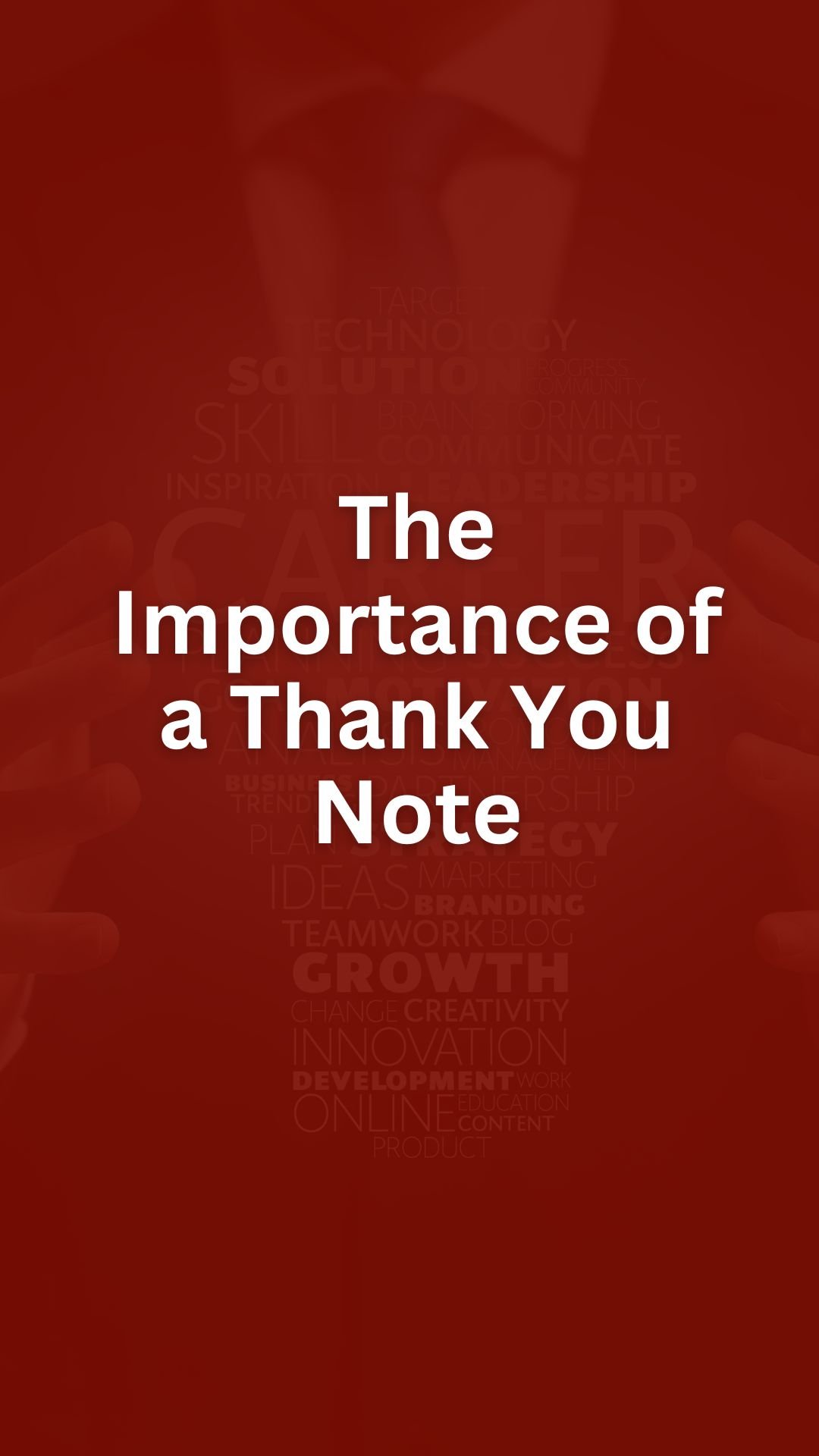
The Importance of a Thank You Note
A thank you note can help you stand out in a sea of candidates.
It shows you care about the job and the people you met.
This small gesture can leave a big impression on your future employer.
Writing a thank you note can also demonstrate your professionalism.
It highlights your good manners and attention to detail.
Employers remember those who show genuine appreciation.
A thank you note isn’t just a formality.
It can be a chance to remind the interviewer of your skills.
You can highlight moments from the interview where you shined.
Sending a thank you note also keeps you on the interviewer’s mind.
It can even open up more conversations.
This communication might boost your chances of getting hired.
Imagine the impact of receiving a well-crafted thank you note.
It shows that you value their time.
In a competitive job market, this can give you an edge.
Remember, a thank you note can help you build strong professional relationships.
It sets a positive tone and fosters mutual respect.
This can benefit you in your career in the long run.
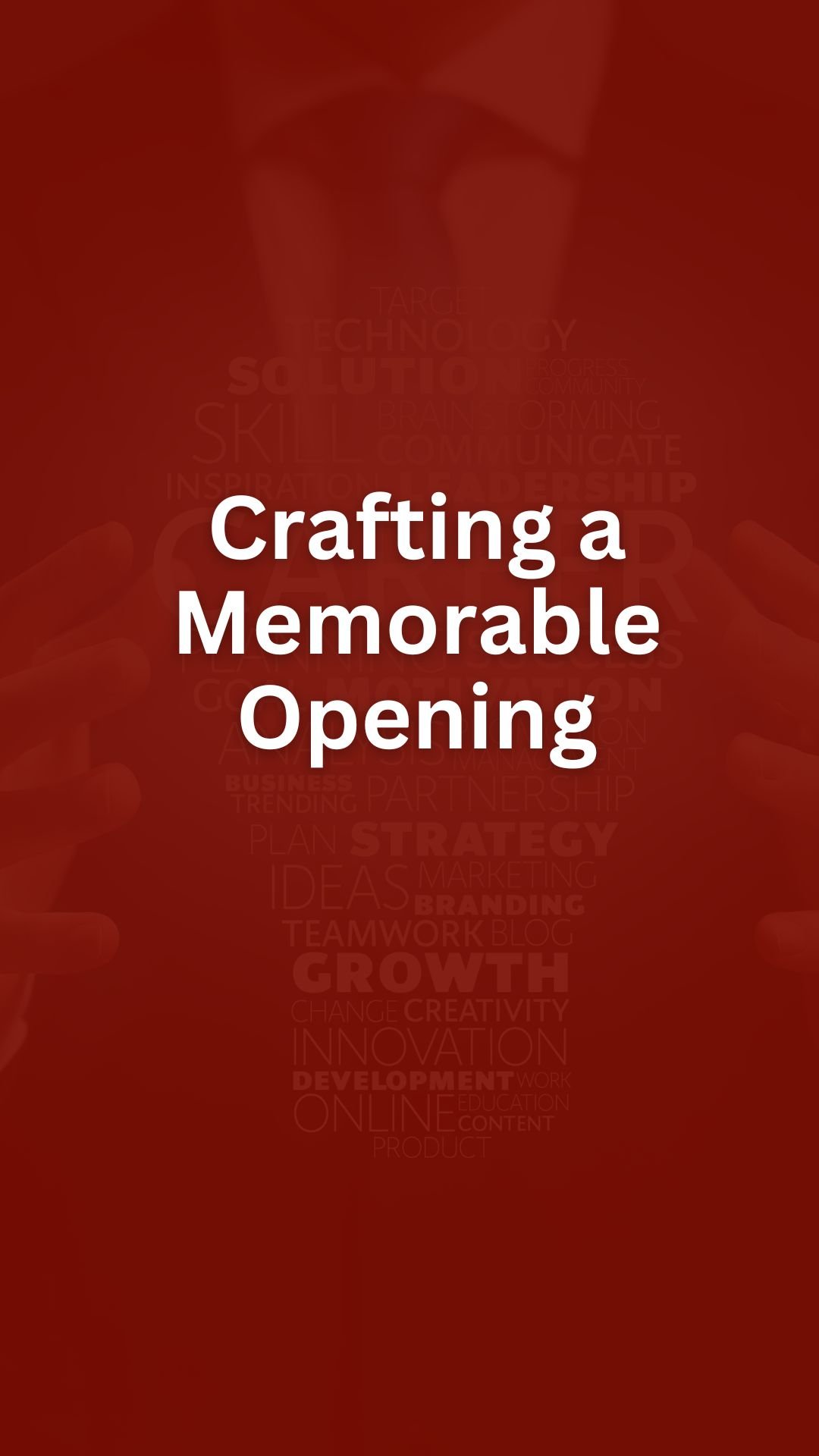
Crafting a Memorable Opening
A great thank you note starts with an engaging opening. This helps you stand out and makes the recipient feel valued.
Start with a personalized greeting. Use the person’s name to make it feel direct and genuine.
Example: “Dear Mr. Smith,”
Begin with a sentence that shows your gratitude and excitement. Mention the specific job or interview.
Example: “Thank you so much for the opportunity to interview for the Marketing Coordinator position.”
Include a positive remark about your experience.
Example: “I thoroughly enjoyed our conversation about the innovative projects your team is working on.”
These steps will set a welcoming tone and show your appreciation. It makes your note feel sincere and thoughtful.
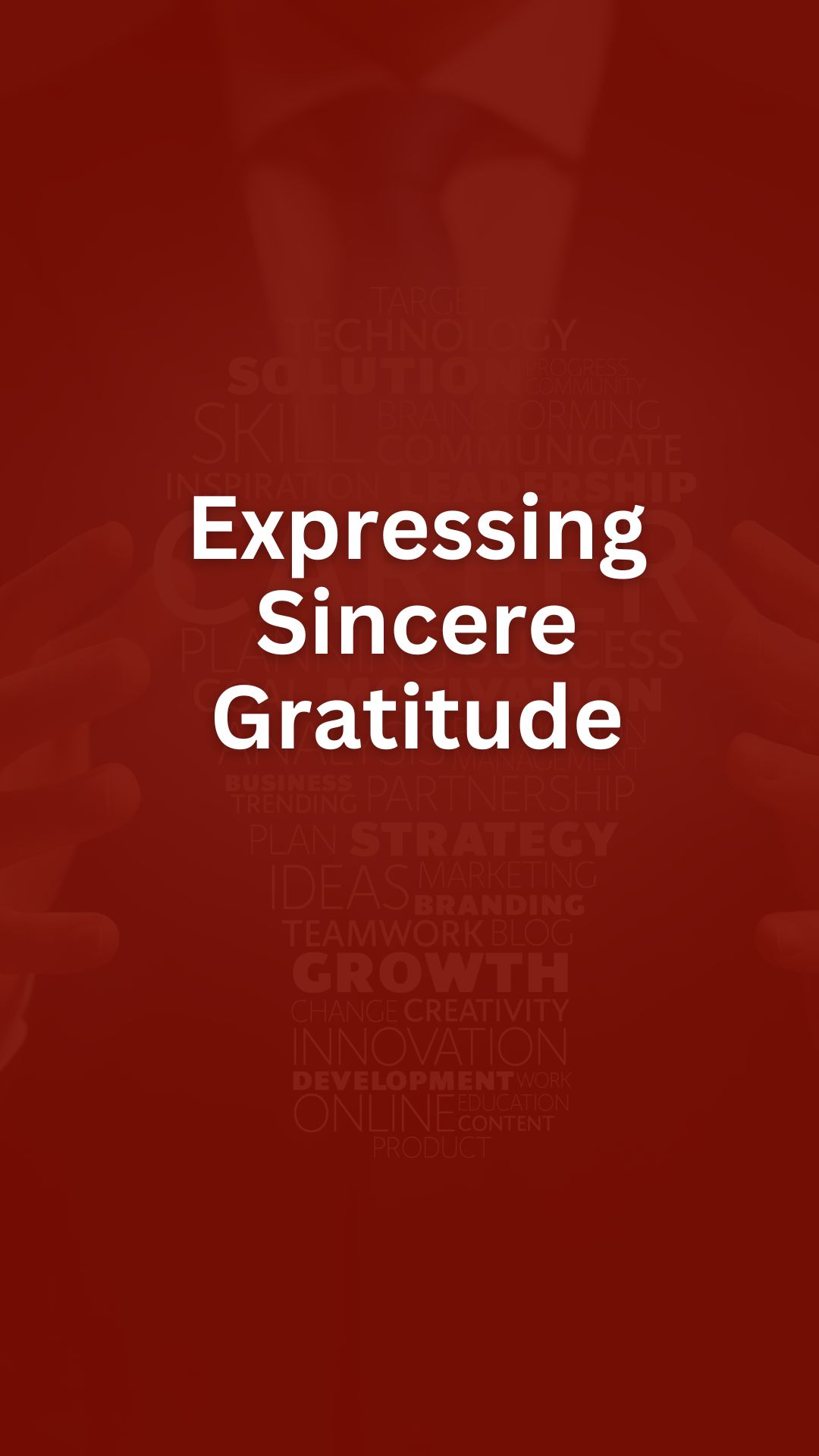
Expressing Sincere Gratitude
Showing genuine appreciation after a job interview can set you apart from other candidates. It highlights your interest in the position and leaves a lasting impression.
Personalizing Your Appreciation
When writing your thank you note, mention specific details from the interview. This shows you were attentive and engaged.
Use the interviewer’s name and refer to any personal connection you made.
Example: “Thank you, Mr. Smith, for sharing your insights on the company’s future projects. I particularly enjoyed discussing the new marketing strategies we talked about.”
Add details that only you can mention.
Maybe you both talked about a shared hobby or similar career goals. This creates a link and shows your genuine interest.
Tips to personalize:
- Mention the interviewer’s name
- Refer to specific topics discussed
- Highlight any personal connection
Highlighting Interview Moments
Recall important points from the interview that excited you.
This reinforces your enthusiasm for the role and helps the interviewer remember you.
Focus on positive moments or unique discussions that stood out to you.
Example: “I was thrilled when we discussed the upcoming product launch. Your team’s approach really resonated with me, and I can see myself contributing greatly to these efforts.”
Mention any challenging questions you enjoyed answering or valuable advice the interviewer gave you.
This shows you value their input and are reflective about the experience.
Key moments to highlight:
- Exciting discussions or projects
- Challenging questions you enjoyed
- Valuable advice or insights received
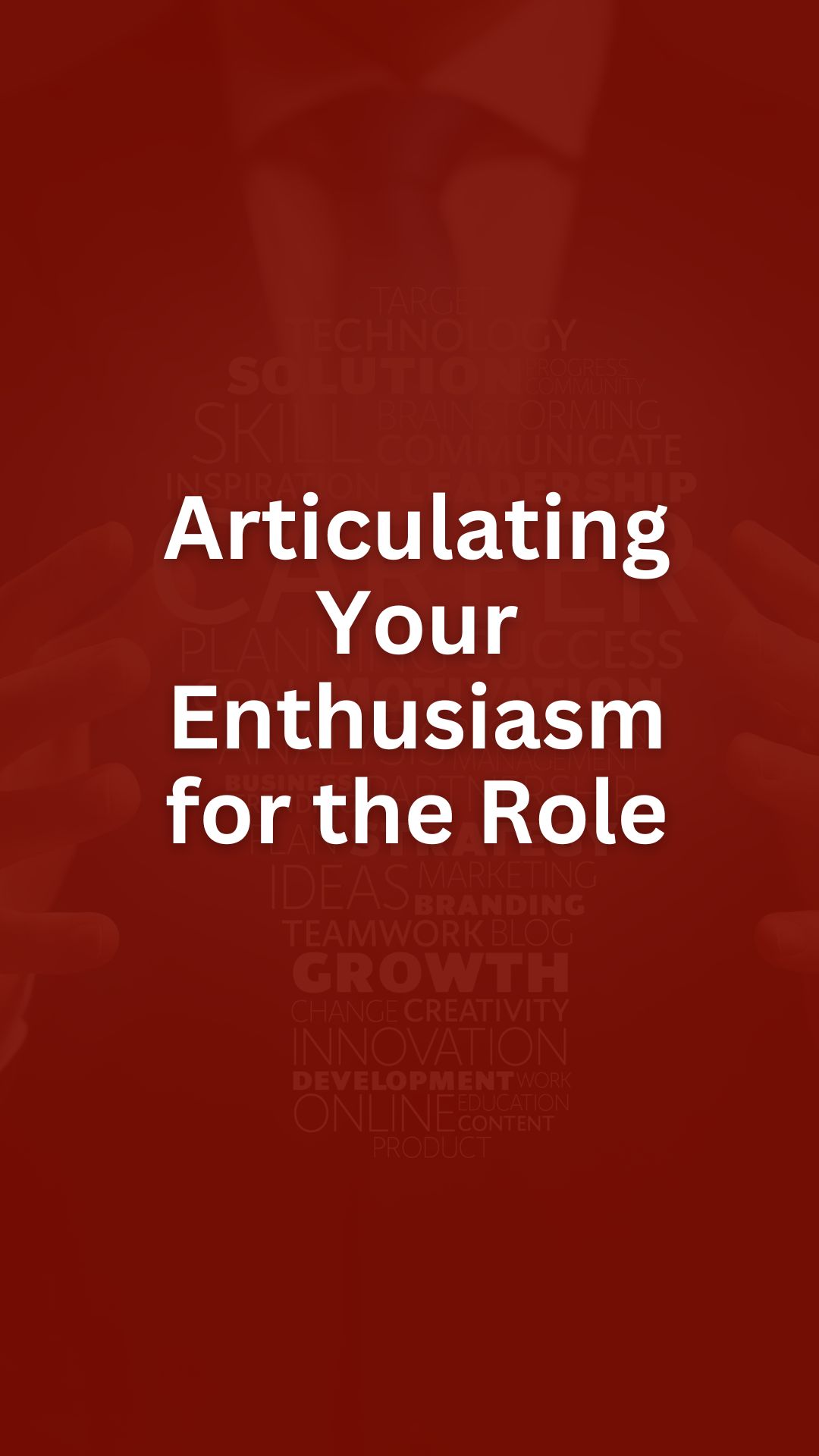
Articulating Your Enthusiasm for the Role
Expressing your excitement about the job can make a big difference. It shows the employer you are genuinely interested.
Conveying Passion
When writing your thank you note, highlight specific aspects of the role that excite you.
Mention any projects or tasks that align with your skills and interests.
For example, if the job involves creative problem-solving, share why this motivates you.
Express genuine enthusiasm.
Use positive language like “excited” or “thrilled.” Avoid generic statements.
Instead of saying, “I’m interested in the role,” say, “I’m excited about the opportunity to contribute to your team.”
Personal connections matter, too.
Reflect on any positive interactions during your interview.
Mention how meeting the team or learning about the company culture increased your eagerness for the role.
Reaffirming Interest
Reiterate your interest in the position by restating your strengths.
Discuss how your experiences and skills make you a perfect fit for the job.
Be specific.
If you have relevant accomplishments, mention them to reinforce your capability and enthusiasm.
Thank the interviewer again and express your eagerness to hear back.
This conveys your ongoing interest and keeps you top of mind.
Keep your tone polite and positive. Ending with a hopeful note shows you truly care about securing the position.
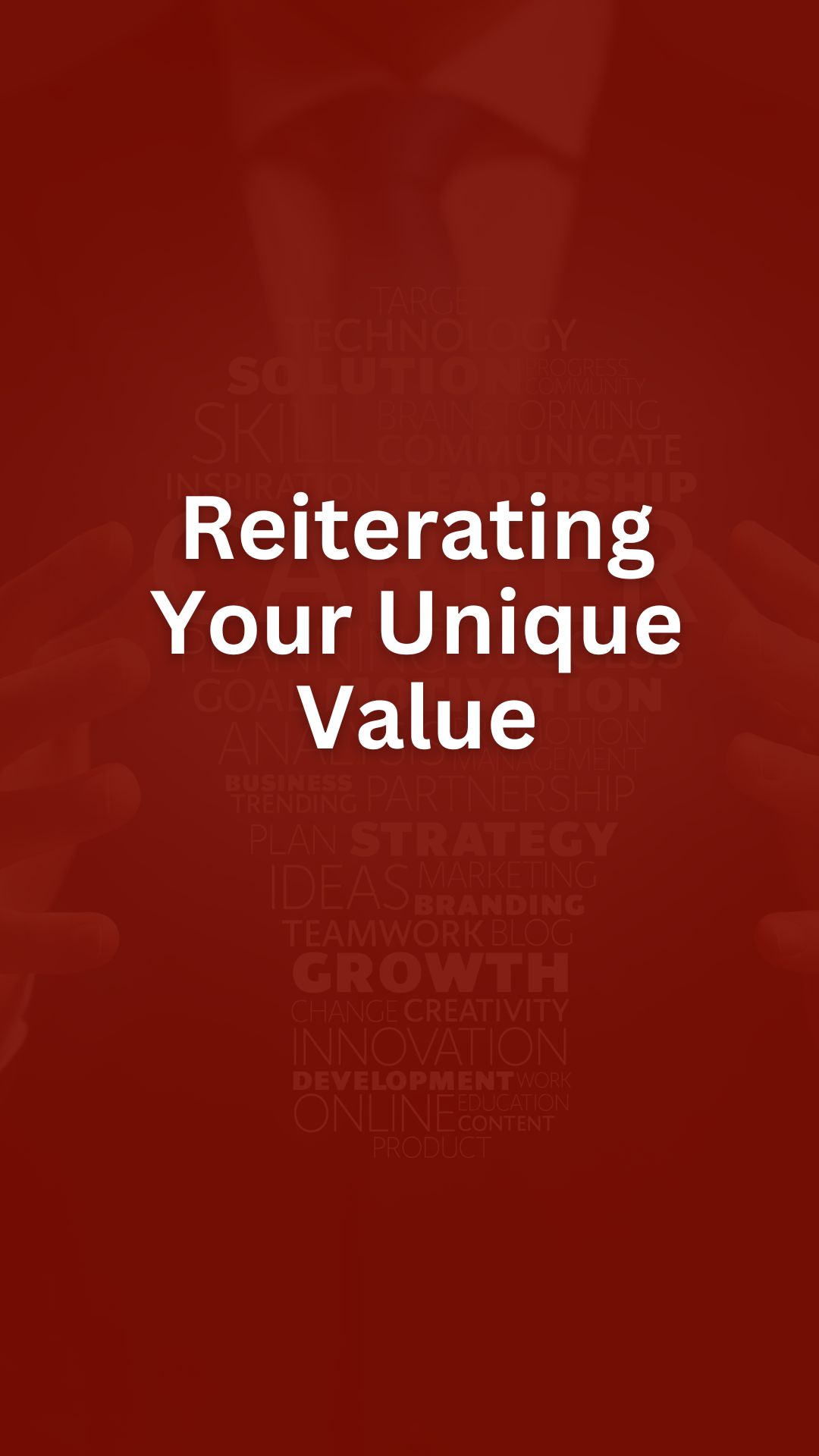
Reiterating Your Unique Value
Highlighting why you are perfect for the job can make a big difference.
Focus on how your skills meet the job requirements and address any unspoken concerns.
Matching Skills to Job Requirements
List the job requirements and match each one with your experiences and skills.
For example, if the job needs project management skills, mention a project you led successfully.
Be specific about your achievements. Use bullet points to emphasize these matches:
- Team Leadership: Led a team of 5 in a six-month project, achieving targets ahead of schedule.
- Problem-Solving: Resolved a critical issue that saved the company $10,000.
- Communication: Delivered presentations to clients, receiving positive feedback.
Tailoring your message to the job shows you’ve thought carefully about how you fit the role.
Addressing Unspoken Concerns
Sometimes employers have concerns they don’t mention. Address these proactively.
For instance, if you lack experience in one area, highlight your willingness to learn or how other experiences make up for it.
Use bullet points to present how you’ll overcome possible gaps:
- Lack of Software Knowledge: Completed an online course and currently practicing daily.
- Limited Industry Experience: Bringing fresh ideas from previous roles that succeeded in other fields.
Showing your proactive approach can reassure the employer of your suitability.
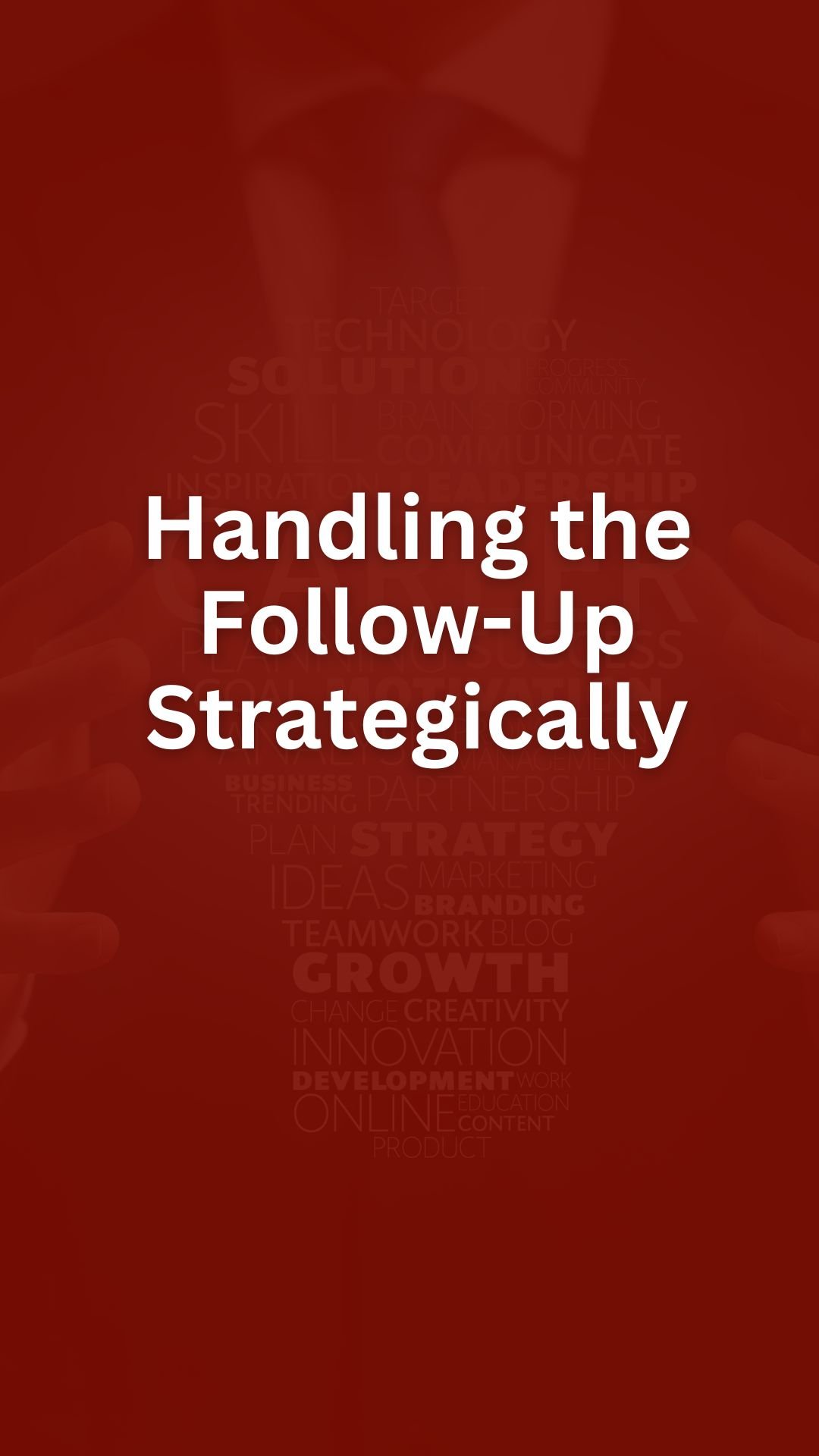
Handling the Follow-Up Strategically
Splitting up the text into at most two sentences per paragraph will make it easier to read.
Timing and the right steps are crucial for a follow-up.
It’s essential to show sincerity and keep yourself memorable without being pushy.
Timing Your Message
The best time to send your thank you note is within 24 hours after your interview.
This shows that you are prompt and interested. Send it too late, and you might seem less motivated or forgetful.
Make sure to send your note during business hours if possible.
An email sent at midnight can be missed or seem unprofessional.
A morning or early afternoon email can be seen faster and show your eagerness.
Navigating Post-Interview Procedures
After sending your thank you note, manage your follow-up steps carefully.
If you haven’t heard back in a week, it’s okay to send a brief follow-up email.
Keep it short and polite. Mention your continued interest in the position and gently ask for a status update.
Don’t call repeatedly or bombard them with emails.
This can seem desperate and annoying. Respect their process and wait patiently.
Write down any instructions the interviewer gave about follow-up steps so you can adhere to them properly.
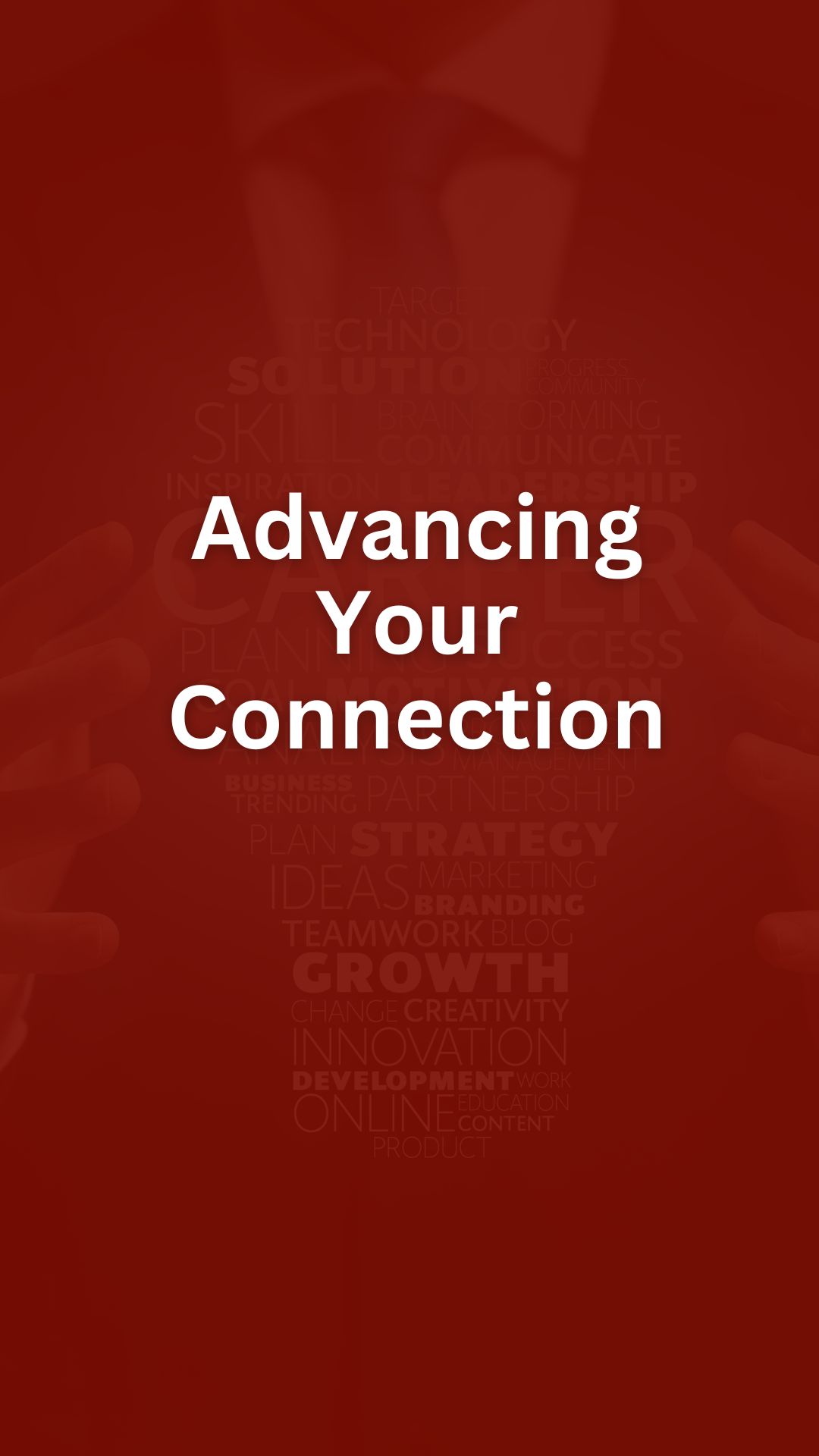
Advancing Your Connection
Creating a memorable thank you note is impressive, but advancing your connection with personalized touches can really stand out.
Referencing Inside Jokes or Moments
Mentioning shared moments or inside jokes shows that you paid attention and valued your interaction.
When you reference an inside joke or moment, it shows you were fully engaged in the conversation.
This not only brings a smile to the recipient’s face but also makes your thank you note stand out.
For example, if you laughed about a funny incident during the interview, reminding them of it reinforces a positive bond.
Be sincere and avoid forced references. Keep it light and professional, ensuring it’s appropriate for the workplace.
Proposing Future Discussions
Suggesting a follow-up conversation shows you’re proactive and genuinely interested in the role.
It could be simple, like expressing your readiness to discuss the company’s future projects.
When you propose future discussions, it’s an opportunity to present yourself as a forward-thinker who is eager to contribute.
Invite further dialogue by offering to meet again or suggesting a call to clarify any points or to talk about next steps.
Be specific about what you would like to discuss, maintaining enthusiasm and professionalism.
This shows you’re committed and eager to keep the relationship going strong.

Choosing the Right Closing
Selecting the best closing for your thank you note can make a big difference. You want something that feels personal and professional.
Here are some great options:
- Best regards
- Sincerely
- Thank you
- Warmest regards
These closings are simple and respectful.
Don’t forget to add your name at the end. It shows that you put thought into the note.
Here’s an example:
Sincerely,
Your Name
Try to match your closing with the tone of your interview.
If it was more relaxed, “Warmest regards” might be perfect. If it was very formal, go with “Sincerely.”
Using the right closing will leave a strong, positive impression. Happy writing!
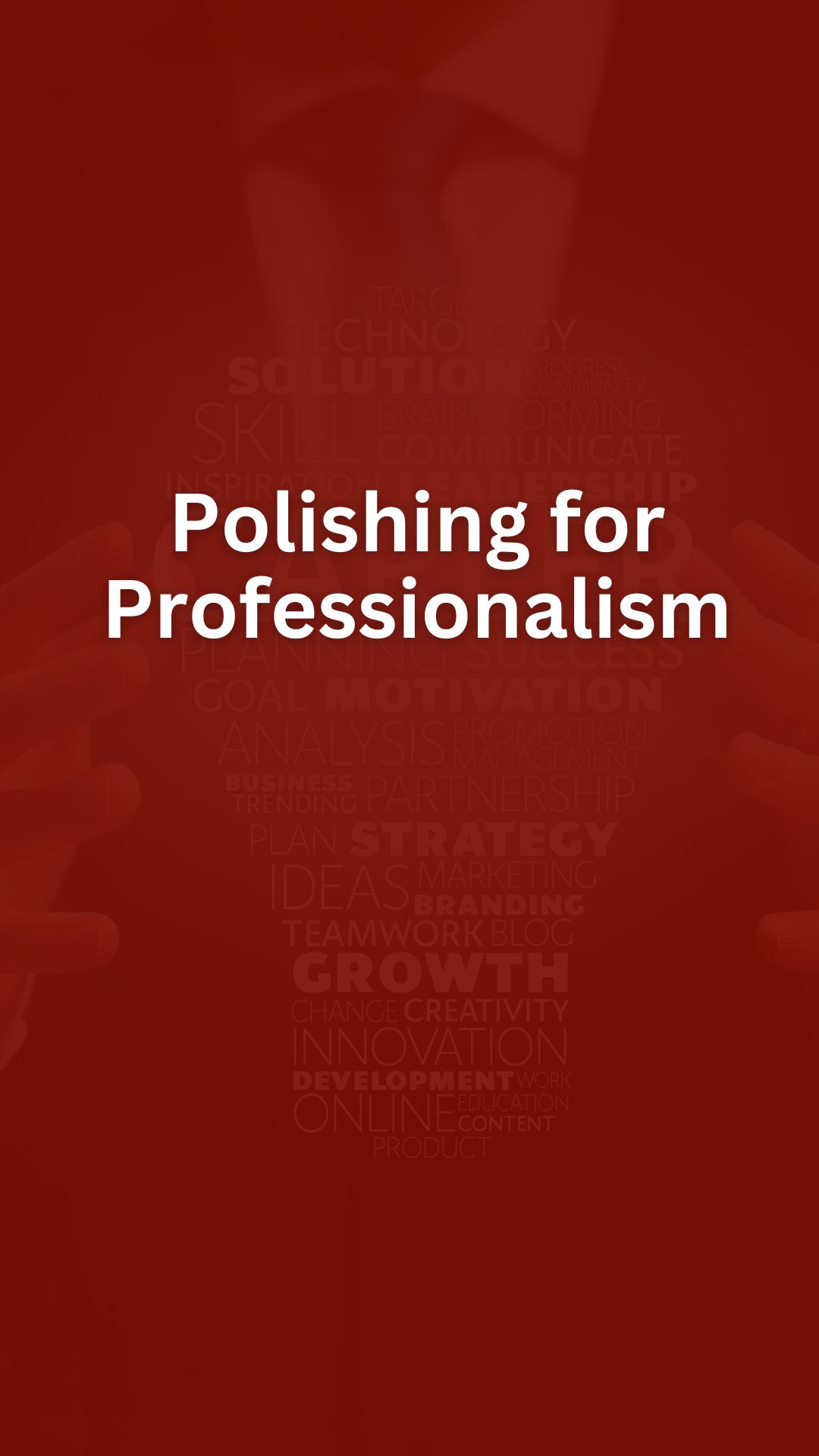
Polishing for Professionalism
Presenting yourself professionally in a thank you note can make a big difference.
You’ll want to carefully proofread your note and decide whether to send an email or a handwritten message.
Proofreading Is Key
Before sending your thank you note, proofreading is essential.
Check for spelling and grammar mistakes. It’s easy to overlook errors when you’re eager to send it off.
Consider reading your note out loud. This can help you catch awkward phrasing.
Ask a friend or family member to review it. They might spot mistakes you missed.
A well-polished note shows attention to detail.
Use spell check tools, but don’t rely on them completely. They can miss context-specific errors.
Email Versus Handwritten Notes
Deciding between email and handwritten notes depends on the situation.
Emails are fast and practical. They’re perfect if the company you interviewed for uses email primarily.
Emails allow you to respond quickly. They can make a strong impression if sent within 24 hours.
Handwritten notes, on the other hand, offer a personal touch. They show extra effort and thoughtfulness.
Choose handwritten notes if the company’s culture values traditional communication.
They take longer to arrive, so consider the timing.
Each method has its own benefits and can demonstrate your professionalism in different ways. Choose the one that best suits the company’s culture and your personal style.
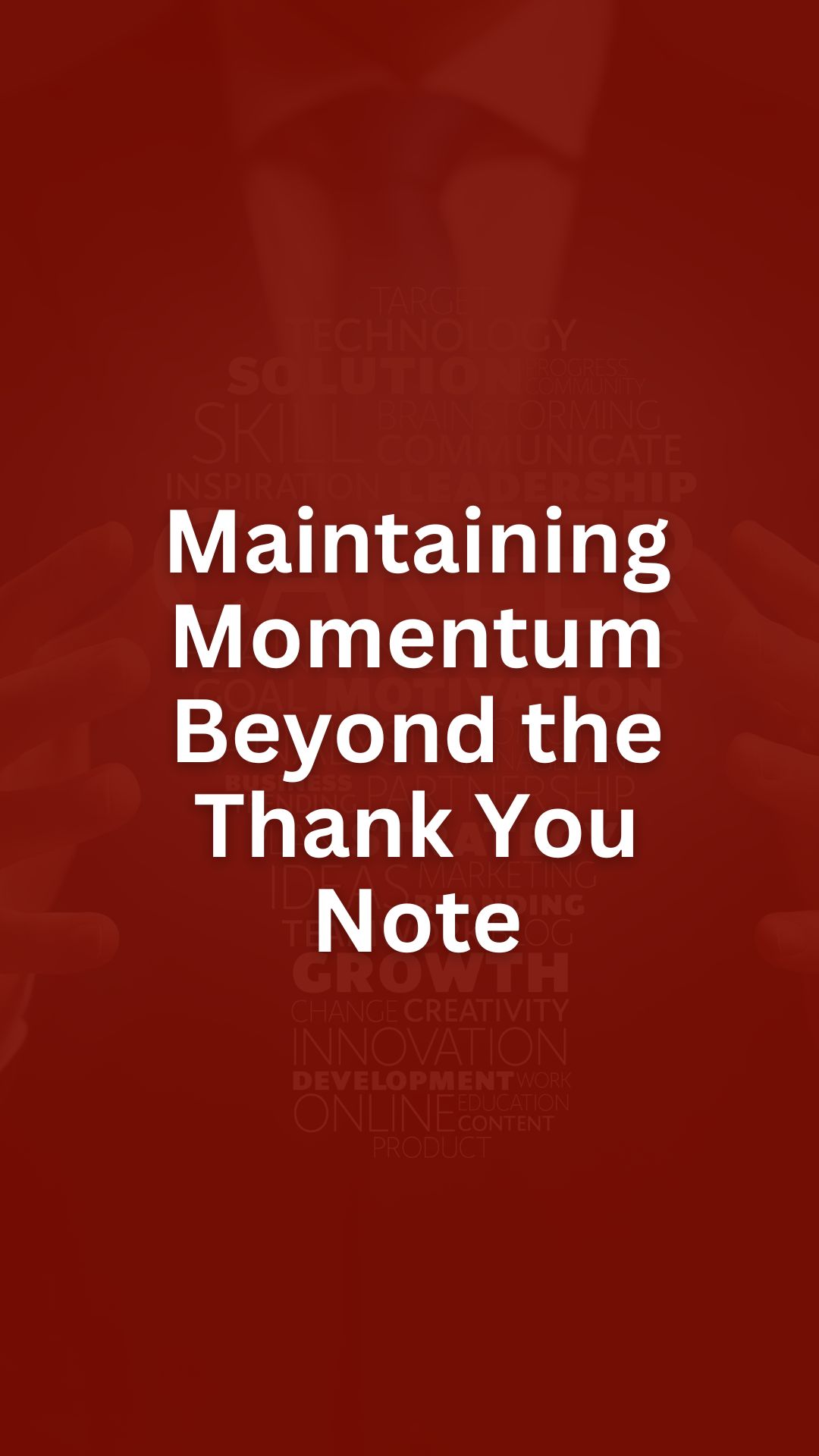
Maintaining Momentum Beyond the Thank You Note
Sending a thank you note is just the start. To keep the momentum going, follow up strategically. This shows you’re really interested in the position.
Step 1: Follow Up
Wait about a week. If you haven’t heard back, send a polite email.
Hi [Interviewer’s Name],
I hope you’re doing well. I wanted to check in about the status of my application for the [Job Title] position.
Step 2: Connect on LinkedIn
Send a connection request on LinkedIn with a short message.
Hi [Interviewer’s Name],
It was great meeting you. I would love to connect here.
Step 3: Share Relevant Content
If you see an article or resource related to the job, share it with your interviewer. This keeps you on their mind and shows your engagement.
Step 4: Stay Positive
Show genuine enthusiasm without being pushy. You can mention your excitement about the role and what you look forward to.
Step 5: Keep Job Hunting
While waiting, continue applying for other jobs. This keeps your options open and reduces stress.
Quick Tips:
- Be Professional: Always keep your tone respectful.
- Be Specific: Mention specific details from your interview to remind them who you are.
- Be Brief: Respect their time with concise messages.
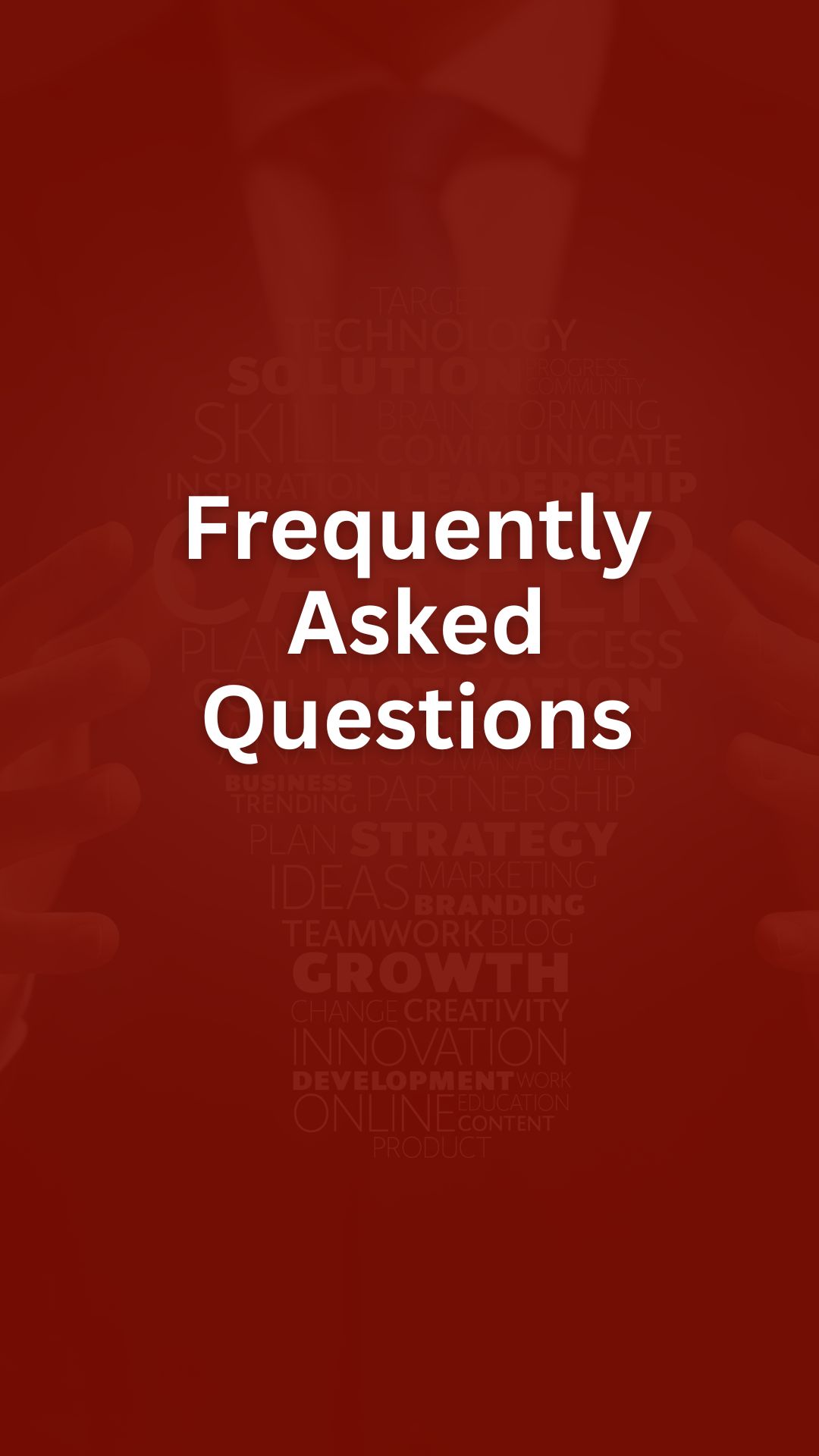
Frequently Asked Questions
Here you will find answers to common questions about writing job-winning thank you notes.
What are the essential elements to include in a thank you note post-interview?
A strong thank you note should contain a sincere expression of gratitude, specific mentions of key points discussed during the interview, reaffirmation of your interest in the position, and a final courteous thank you.
Can you provide an example of an effective thank you email for after an interview?
Dear [Interviewer’s Name],
Thank you for taking the time to meet with me today. I enjoyed learning more about [Company Name] and the [Job Title] position. Our discussion about [specific topic] particularly resonated with me. I am excited about the opportunity to contribute to your team. Thank you again for your consideration.
Best regards,
[Your Name]
What’s the best way to convey appreciation for a job interview opportunity?
Be direct and genuine. Mention specific moments or topics from the interview that stood out to you. This shows that you were paying attention and are truly interested in the position. Sincerity goes a long way.
How can I write a thank you note that stands out to employers after an interview?
Make it personal. Reference specific points from your conversation. Highlight your enthusiasm for the role and how your skills align with the company’s needs. A handwritten note can also add a personal touch.
Is it appropriate to send a group thank you email to all interviewers, and how should it be structured?
Yes, it’s appropriate for panel interviews. Address everyone by name, if possible, and thank them collectively. Mention the group dynamics and any specific points raised by multiple interviewers. Keep it brief and respectful.
What are some concise yet impactful ways to follow up with a thank you after an interview?
Stick to the basics: thank the interviewer for their time. Then, mention something specific discussed in the interview, express your interest in the position, and end with another thank you.
A short, thoughtful message can make a big impact.